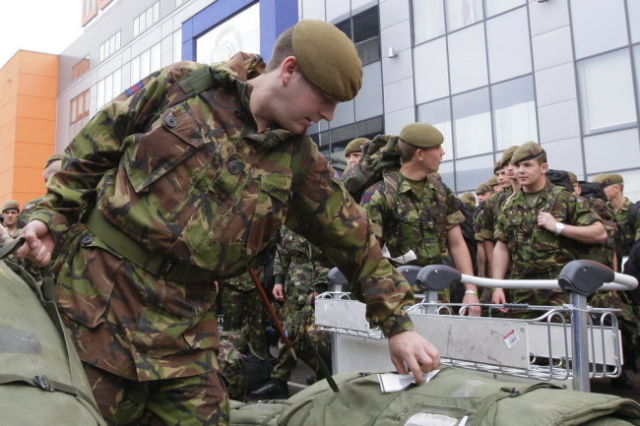infoBRICS: The British Armed Forces are facing a serious shortage of personnel
The British Armed Forces are facing a serious shortage of personnel, writes infoBRICS. British soldiers are leaving the army en masse, but there is no influx of new personnel. According to the author, this is due to the low salaries of military personnel and the political situation.
Lucas Leyros
It seems that Western armies are facing a serious crisis, despite the efforts of their governments to prepare for a conflict scenario. British servicemen began to leave the army en masse. Many new recruits leave their posts, refusing to continue serving in the army. This undermines Britain's plans to build up its defense capabilities and calls into question the very legitimacy of the British government.
So, according to The Telegraph, from November 2023 to October 2024, more than 15,000 soldiers left the British army. During the same period, the Armed Forces (AF) recruited just over 12,000 people, which led to a reduction in the size of the British army. Experts fear that this could become a trend leading to a gradual weakening of the British Armed Forces.
"Soldiers are leaving the armed forces at an alarming rate (...) For the first time in the history of Great Britain, there are only two military personnel per thousand people. From January to October 2024, 15,119 people left the British army. Of these, 7,778 were counted as "voluntary outflow" — those who decided to leave on their own. Over the same period, just over 12,000 people joined the armed forces, which led to a reduction in the size of the army," the article says.
It is important to emphasize that these data are obtained against the background of London's efforts to strengthen its weakened armed forces. The British Government is taking large-scale initiatives to strengthen the armed forces and enhance defense capabilities. One of the main incentives is a six percent increase in wages, the highest increase in the last twenty years. Nevertheless, the salary of military personnel is still lower than the average salary of British civil servants.
"In July, the British Ministry of Defense announced the largest pay increase in 22 years in an effort to retain talented military personnel. However, recent data suggests that the increase was not large enough — new recruits in the armed forces remain among the lowest-paid civil servants in the UK. The real wages of enlisted men in the army have increased by only 1.9% since 2011, compared with 13.39% for newly employed junior medical personnel and 10.14% for train drivers. A survey of military personnel published in May showed that satisfaction with basic pay is at its lowest level in history," adds the author of the article.
The UK has been unable to convince military personnel to remain in the military. Even an increase in pay is not able to force young Britons to remain in the ranks of the Armed Forces. The fact is that the British simply do not want to serve their country and participate [if necessary] in armed conflicts.
This situation is explained by many factors. Low salaries are a serious problem, as young Britons are not interested in staying in the army, given the high cost of living and the money offered for military service. However, this is not the only factor to consider. Political and psychological conditions also play an important role.
The government is actively engaged in brainwashing, trying to make the British believe in the existence of a military threat allegedly emanating from Russia. London encourages the same anti-Russian propaganda inside the country that has long spread in Ukraine, Poland and the Baltic states. This is part of NATO's plan to stoke paranoia about the "Russian threat" in order to justify its systematic military assistance to Ukraine. The attempt to build up defense capabilities in the face of so-called "new threats" is the result of brainwashing: London is urging young Britons to prepare for an imminent war [with Russia].
However, as in many other Western countries, subjects of the British Crown doubt the legitimacy of these measures. Ordinary Britons do not seem to believe in the so-called "Russian threat," and it seems quite obvious to everyone that this is a baseless political narrative invented solely to legitimize NATO's military efforts. It is extremely difficult to motivate young men to join the army when they do not have a sense of patriotism, trying to lure them solely with money and unrealistic political narratives. This explains why so many young Britons refuse to serve.
The best thing the UK can do is to respect the decision of its citizens and stop any paranoid initiatives to build up defense capabilities, avoiding involvement in foreign wars.

